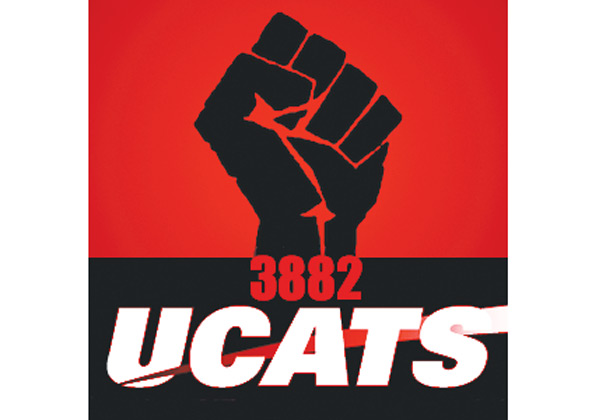
A key union representing nearly 30 percent of NYU’s non-academic staff is following the footsteps of the university’s largest college and holding a vote of no confidence on NYU President John Sexton.
Rarely mentioned in the ongoing media coverage of Sexton’s presidency, the union represents 1,400 clerical, technical and administrative workers at NYU. The union said on March 13 that it would move to hold a vote among its members in the coming weeks. According to NYU, the university currently employs 5,000 full-time and part-time technical, clerical and administrative employees.
The union’s decision comes after the Faculty of Arts and Science validated a motion of no confidence. Out of the 682-member body, 298 voted in favor of the measure — 83 percent of eligible voters participated in the vote last Friday.
In a statement drafted by the Union of Clerical, Administrative, and Technical Staff at NYU, Local 3882, the union cited issues such as stagnant wages, unmanageable health care costs and deteriorating quality of work life facing its staff. The union also says that the NYU 2031 expansion project will require an increase in staff duties they believe the university cannot support.
“We hope … to demonstrate what we have been telling [the administration] for years, that the discontent with the problems are widespread,” UCATS president Stephen Rechner said. “They manifest themselves not only in an expanding university but also in a declining clerical staff base.”
Rechner has been the union’s leader since 2003 and is a vocal advocate not only for his members, but for the NYU students and faculty as well. He added that the number of grievances within the association has increased exponentially in the last three years. For him, the FAS vote was a timely outlet for their own members’ building frustration. The union is also an active participant in recent rallies against student debt and NYU 2031.
University spokesman John Beckman called the UCATS vote “a paradox,” given that the union signed a contract with NYU about 18 months ago, after it was ratified by a vote of 454 to 102 among its voting members.
The contract detailed annual wage increases of roughly three percent for employees between 2013 and 2016, after an increase of 1 percent and 2.5 percent in 2011 and 2012 respectively.
UCATS staff members make on average $900 a week, or roughly $45,000 a year on a 50 work week schedule.
Over an eight-year period ending in 2010, the NYU Faculty Against the Sexton Plan group estimated that faculty pay packages increased on average 2.55 percent, two-tenths of a percent below the level of inflation during the same period.
Yet contrasting these increases against a number of base compensation raises senior administrators have earned each year is striking, Rechner said.
According to NYU’s 2010-2011 and 2009-2010 IRS 990 tax forms, base compensations for employees like chief clinical officer Andrew Brottman, NYU Wagner Executive Robert Berne and chief investment officer Tina Surh jumped 5 percent, 13 percent and 40 percent respectively. These numbers do not include bonus, incentive, retirement, deferred or other reportable compensations.
Beckman stated that spending on administration salaries have decreased relative to spending on faculty and schools. According to Beckman, the university’s annual audited financial statements show that spending on “Instruction, Research and Libraries” doubled over the past 12 years while spending for “General and Administrative, Auxiliary and Institutional Services” increased by 58 percent.
The university has also said that when balancing the satisfaction of its administrative staff members, faculty and its student body, students come first. Beckman emphasized the importance of sustaining NYU’s academic priorities over all else.
“We always try to strike a balance between ensuring that we have sufficient staff to support students and faculty in the academic mission … [and ensuring] that as much money as possible goes to instruction and research and financial aid,” Beckman said.
Comparing wages across institutions is difficult given that job titles and descriptions vary and wages depend on experience and job grades. Better benefits at one institution may compensate for lower wages. But when base wages were juxtaposed with other universities of similar size, NYU’s wage increases for administrative employees were similar.
The Boston University Local 2324 union contract detailed a 2.5 percent increase in 2011 and 2 percent increases until 2014. A draft of Columbia University’s agreement with the Local 2110 agreement terminating in 2012 detailed a 3.5 percent increase for employees in 2011.
The university draws from the same $1.3 billion operating budget to pay all personnel costs, including salaries, severance payments and loans for academic and non-academic staff members, according to NYU’s most recently published operating budget. Queens College professor Andrew Hacker said that is a zero-sum game.
“Here the issue isn’t underpaid clerks and technicians,” Hacker said.
For Hacker, author of “Higher Education?: How Colleges Are Wasting Our Money And Failing Our Kids,” a major source of budgeting problems at universities is the overflow of needless bureaucratic offices that serve no academic purpose.
“The problem isn’t the secretaries, but the six-figure vice presidents and deputy provosts with expansive budgets for attending conferences in distant place,” Hacker said. “At NYU, as at most universities, it’s easier to hire yet another assistant director of an arcane bureau than to add an assistant professor to teach in the philosophy department.”
As the recent vote sends ripples through the NYU community and more groups begin the same conversation, people like Rechner say they hope to be heard.
“The university community, the real community, not just President Sexton’s inner circle, has delivered a powerful message,” Rechner said. “Hopefully, President Sexton and our Board of Trustees are listening.”
UCATS March 14, Press Release by ScribdWSN
A version of this article was published in the Monday, March 25 print edition. Amy Zhang is managing editor. Email her at azhang@nyunews.com.
This post is part of our coverage of the spread of the vote of no confidence. Go to the main no confidence hub for the latest stories and updates.

























































































































































